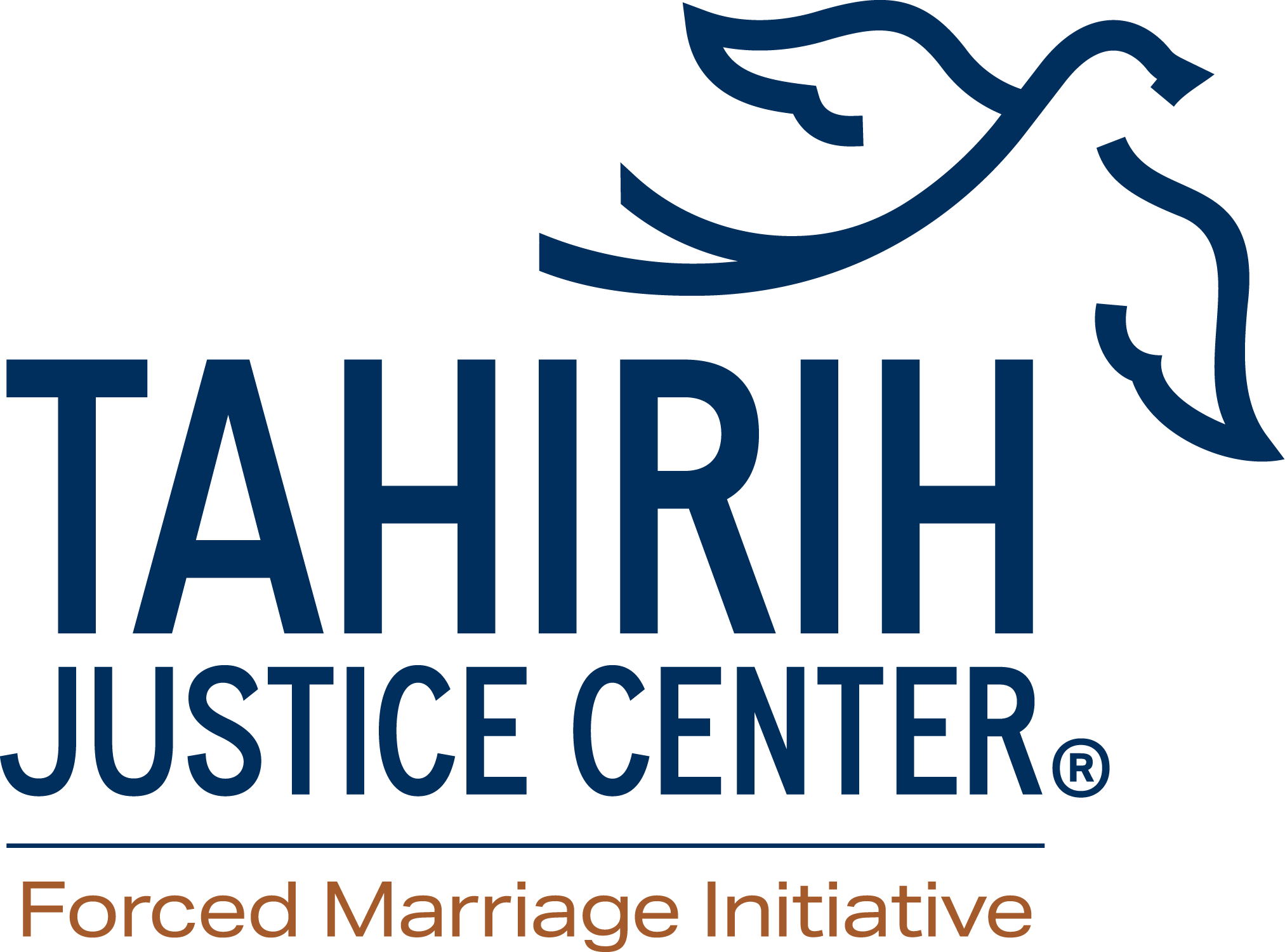Resources
This is a searchable library of publications, webinars, blog posts, and training manuals from the U.S. and around the world on the topic of forced marriage.
Forced Marriage Initiative Brochure: Marriage is Your Choice – Pashtu Translation
Author: Forced Marriage Initiative
Publication: September, 2021
This brochure, now available in Pashtu, provides an overview of forced marriage in the United States, basic safety tips for survivors, and the services offered by the Forced Marriage Initiative at Tahirih Justice Center
Forced Marriage Initiative Brochure: Marriage is Your Choice – Dari Translation
Author: Forced Marriage Initiative
Publication: September, 2021
This brochure, now available in Dari, provides an overview of forced marriage in the United States, basic safety tips for survivors, and the services offered by the Forced Marriage Initiative at Tahirih Justice Center.
A Framework for Identifying and Responding to Cases of Forced Marriage
Author: Forced Marriage Initiative
Publication: July, 2021
This framework provides comprehensive guidance for service providers who may encounter individuals facing forced marriage. It includes an overview of the complex nature of forced marriage cases, tips for screening and conducting a needs assessment, sample intake forms, and appendices offering more specific guidance on safety planning for relocation, travel abroad, family mapping, working with minors, and the intersection of forced marriage with female genital mutilation/cutting.
A Framework for Identifying and Responding to Cases of Forced Marriage
This document provides a comprehensive framework for identifying and responding to cases of forced marriage. The Framework includes tips for screening for forced marriages, how to incorporate forced marriage into standard intake processes, information on safety planning and relocation, tips for handling cases that involve travel out of the country, tips for family mapping and working with minors, and information about the intersection of forced marriage with female genital mutilation/cutting.
Forced Marriage Safety Card for Healthcare Providers
Authors: Futures Without Violence, Tahirih Justice Center
Published: March 2021
Healthcare providers are a crucial point of contact for survivors and individuals facing forced marriage. Tahirih collaborated with Anisa Ali of Futures Without Violence to create a resource specifically focused on forced marriage to be made available in healthcare settings. This tool is most effective when placed in private areas such as restrooms and exam rooms, and may be given to patients routinely as part of regular visits, or upon disclosure of abuse. Included are definitions of forced marriage and how it differs from arranged marriage, indicators of force, fraud and coercion, information about the health consequences of forced and child marriage, and resources for individuals facing forced marriage to seek support.
When printed, the safety card can be folded to the size of a business card to allow for discretion when sharing it with at-risk patients. It can also be used as a script for providers, and given to the patient as a resource to let them know that Marriage is Your Choice.


